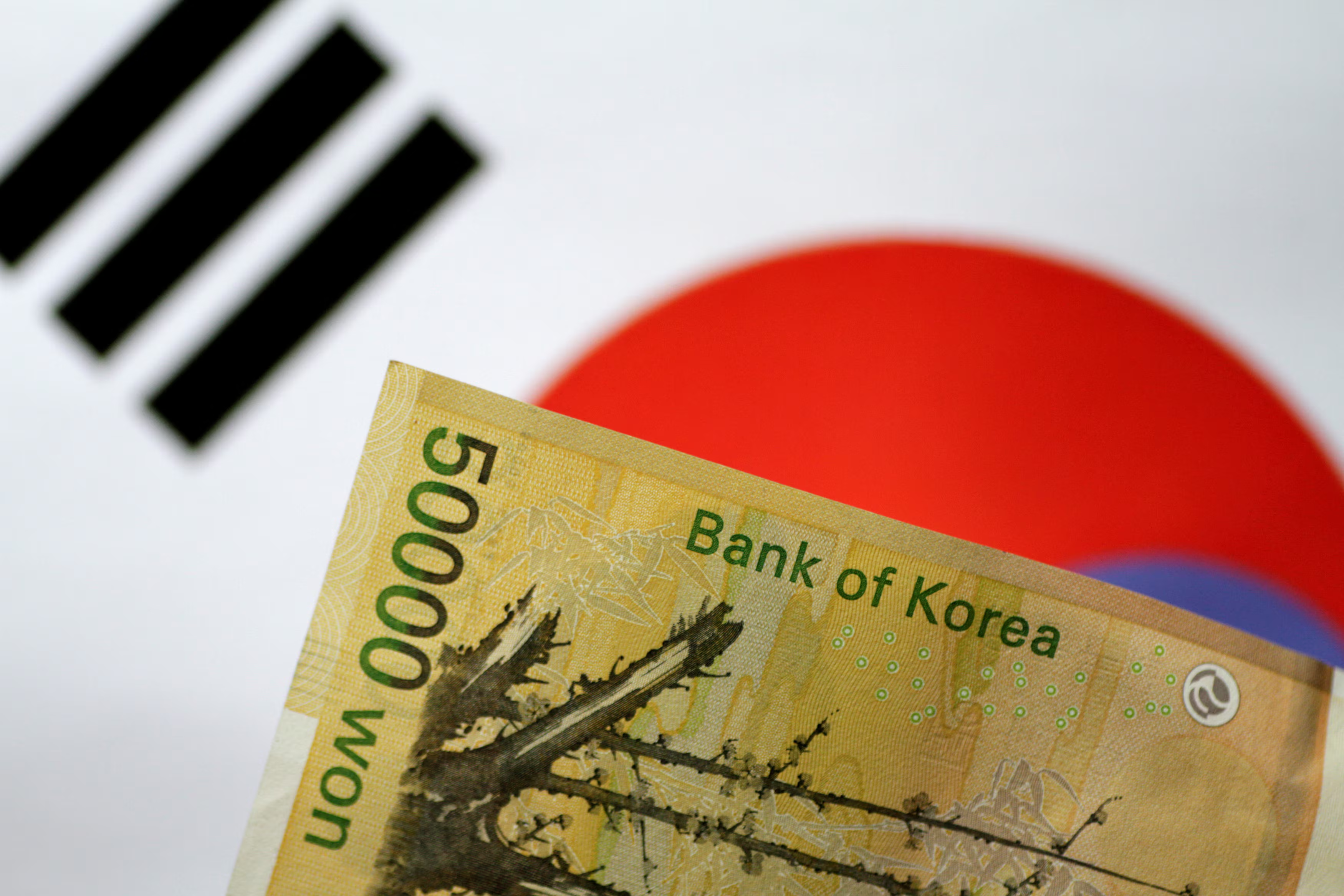South Korea’s financial authorities announced a change in policy on Friday, aiming to bolster foreign exchange liquidity and defend the South Korean won, which has plunged to its weakest level in 15 years.
These measures reflect a major shift in the country’s foreign exchange policy, prioritizing flexibility and encouraging foreign capital inflows amidst mounting economic and political pressures.
The South Korean won has been under immense pressure in recent weeks. On Thursday, it hit a 15-year low, driven by a combination of global and domestic factors. The U.S. Federal Reserve’s cautious stance on future interest rate cuts has led to heightened risk aversion among investors, pushing the dollar higher against emerging market currencies, including the won.

President Yoon Suk Yeol’s controversial martial law order on December 3, which was quickly rescinded, coupled with his subsequent impeachment, has fueled uncertainty, rattling investor confidence further.
Recognizing the urgent need to address worsening liquidity conditions, the finance ministry, in collaboration with the central bank and other regulatory agencies, unveiled a set of measures aimed at enhancing foreign exchange flexibility.
“Strict regulations restrain the efficiency of foreign exchange management,” the finance ministry stated in a joint release. “There is a need to consider the deteriorated foreign exchange liquidity conditions after recent events.”
The changes mark a significant departure from the traditionally conservative approach to foreign exchange management. They are designed not only to stabilize the won but also to attract more foreign capital into the country.

According to the new policy, Companies will now be permitted to take out loans in foreign currencies and convert the funds into won for use in investments such as equipment purchases, property acquisitions, and land development. This move is expected to provide businesses with greater access to global financial markets while boosting domestic liquidity.
READ ALSO: Massive Ukrainian Drone and Missile Strike Ignites Fire at Russian Oil Refinery
To further enhance flexibility, the government will raise the ceiling on foreign exchange futures contracts. For local banks, the limit will increase from 50% to 75% of their capital holdings, while Seoul branches of foreign banks will see their limit rise from 250% to 375%.
Authorities emphasized their commitment to loosening regulations on private-sector capital inflows as long as these do not negatively impact the country’s external debt levels or credit ratings. “It is a paradigm shift in foreign exchange policy, from regulating external debt to inducing more foreign inflows,” a finance ministry official stated.

The decision to relax foreign exchange regulations comes with its risks, particularly concerning the potential for increased external debt and the impact on South Korea’s credit ratings. However, officials remain confident that the measures will strengthen liquidity without compromising the country’s financial stability.
The finance ministry underscored its focus on ensuring that these changes are implemented in a way that does not lead to adverse outcomes. “We will continue to loosen regulations on capital inflows from the private sector unless it affects external debt or credit ratings in a negative way,” official told Reuters on phone.
This bold policy shift demonstrates South Korea’s determination to adapt to evolving economic realities while safeguarding its financial markets. By addressing liquidity challenges and fostering a more flexible foreign exchange regime, the government aims to stabilize the won and restore investor confidence.
REUTERS
Discover more from Cine critique
Subscribe to get the latest posts sent to your email.

